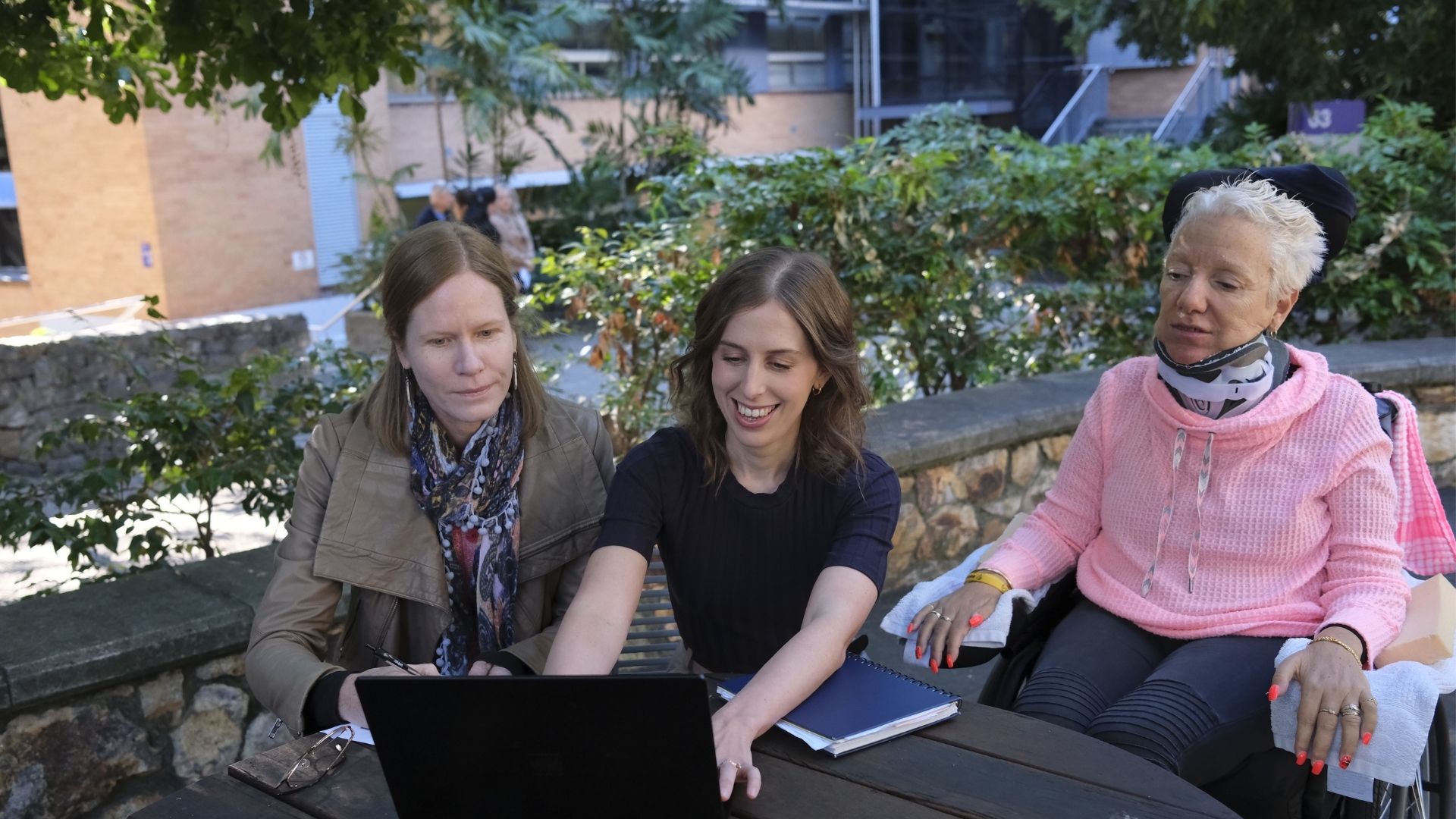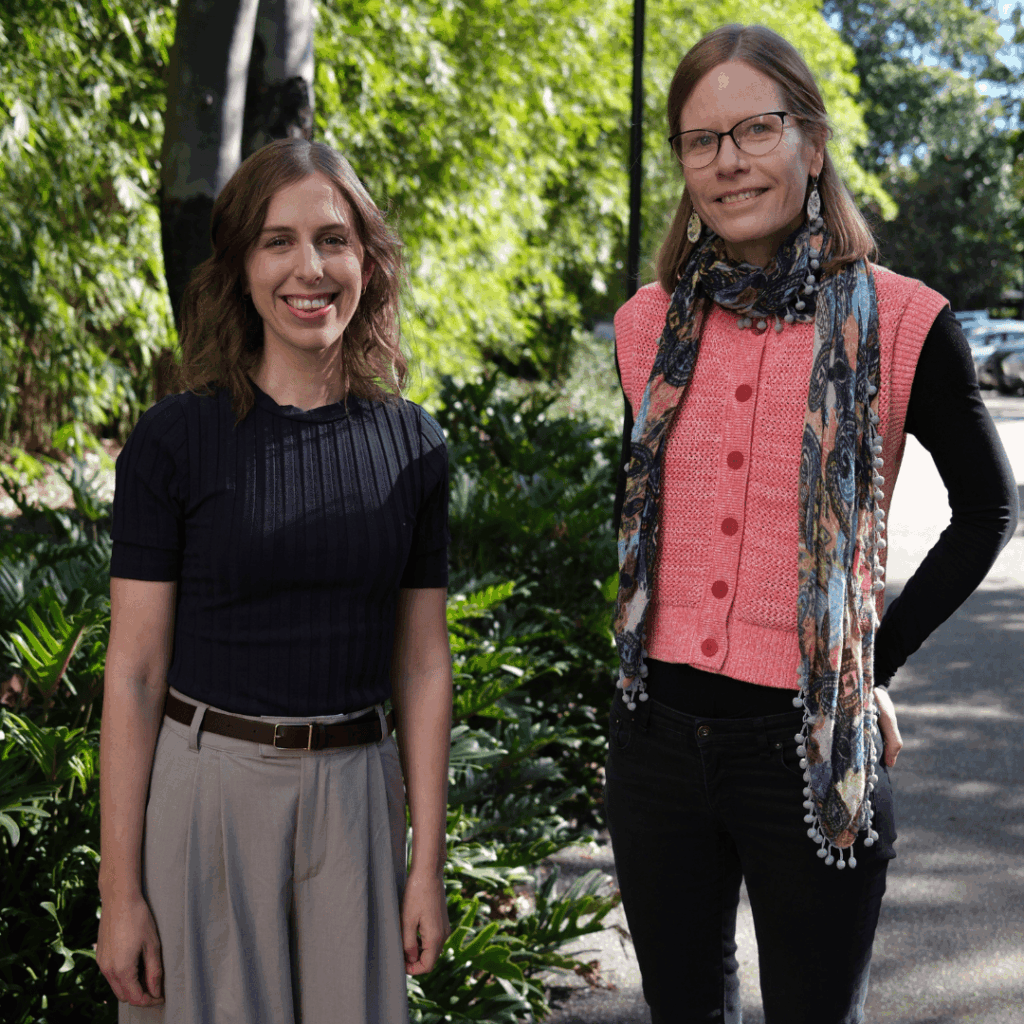SCOPE MND: Laura Donnelly’s efforts to enhance care for people living with MND

People living with motor neurone disease (MND) often face symptoms like coughing and excess saliva. These can increase the risk of respiratory infections and hospital visits, affecting their quality of life. Managing these symptoms is tough, and about half of patients find treatment does not fully address their concerns. Laura Donnelly, a physiotherapist and PhD candidate at Griffith University, aims to improve care in this area with her project, SCOPE MND, which stands for Secretion and Cough Optimisation for People with MND.
Laura is the first recipient of a FightMND Clinical Care PhD Scholarship and Grant-in-Aid. This support allows her to focus on this vital research while staying connected to clinical practice. It also helps her work closely with people living with MND, including those in rural and remote areas.
Her project seeks to enhance care for individuals with MND who deal with cough and secretion symptoms. “Through better symptom management,” Laura explains, “people living with MND and their caregivers can find greater comfort, experience fewer respiratory issues, and make fewer emergency hospital visits, leading to an improved quality of life.”

Laura is the first recipient of a FightMND Clinical Care PhD Scholarship and Grant-in-Aid. This support allows her to focus on this vital research while staying connected to clinical practice. It also helps her work closely with people living with MND, including those in rural and remote areas.
Her project seeks to enhance care for individuals with MND who deal with cough and secretion symptoms. “Through better symptom management,” Laura explains, “people living with MND and their caregivers can find greater comfort, experience fewer respiratory issues, and make fewer emergency hospital visits, leading to an improved quality of life.”
As a clinician, Laura has seen how troubling these symptoms can be. “Working with people with MND, I’ve seen the daily impact of cough and secretion symptoms,” she shares. “Collaborating with Speech Pathology colleagues has shown me the value of a holistic approach. I want to apply this method on a larger scale.”
Existing research tends to address care for cough and secretion problems separately. However, Laura will focus on how health professionals can work together to deliver integrated cough and secretion care, especially for people in non-metropolitan areas.
With the support of PhD supervisors Dr Samantha Bunzli, A/Prof Laurelie Wishart and Dr Shana Taubert, Laura aims to:
- Understand the evidence for collaborative care on cough and secretion issues.
- Describe the experiences, needs, and preferences of people with MND as they navigate services for these symptoms.
- Identify the challenges clinicians face in providing care.
She will then co-design a new model of collaborative care in partnership with an advisory group made of individuals living with MND, caregivers, clinicians, researchers, and representatives from MND organisations.

Laura’s research uses Participatory Action Research, which centres on people with lived experience. “People with MND and their caregivers will be involved in planning each research phase, interpreting findings, and guiding the next steps,” she explains. “This approach ensures the research addresses real needs and leads to practical changes.”
As an early-career clinician-researcher, Laura values the support she receives. “We’re on the front line of patient care as clinicians, so we see the issues that need attention. Early-career researchers also bring new ideas that could change lives.”
Support from FightMND helps Laura take the next step. “It gives me dedicated time to sharpen my research skills and work with an expert team. It also allows me to conduct in-person interviews with people in rural areas or with functional limitations, ensuring the research is inclusive and representative.”
What excites Laura most is the growing emphasis on care research. “Until there is a cure, we must provide the best care possible,” she says. “I’ve already collaborated with supportive multidisciplinary researchers across Australia and internationally.”
Through this work, Laura hopes to co-design a care model that improves symptom control, reduces health issues, and leads to a better quality of life. “Supporting FightMND is a way everyday Australians can make a difference—and I’m proud to be part of that.”
FightMND invests $1.37 into Care research and PhD Scholarships in 2025
At FightMND, we know people living with MND need better support now. That’s why we invest in research that not only seeks to cure MND but improves the care that makes a difference today.
In 2025, we’re investing nearly $1.37 million into Care Research Grants and PhD Scholarships and Grants-in-Aid. Supporting both innovative care solutions and the next generation of MND researchers, like Laura.
Learn more about the projects and researchers receiving funding on our website.